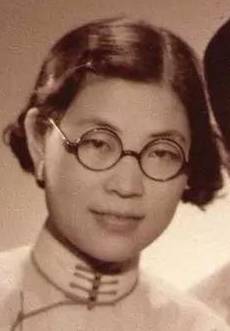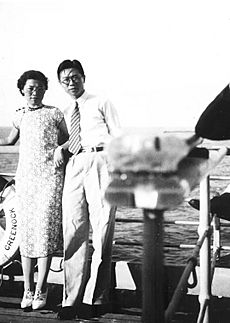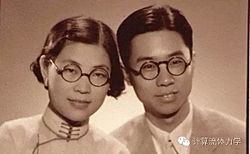Lu Shijia facts for kids
Quick facts for kids
Lu Shijia
|
|||||||||
|---|---|---|---|---|---|---|---|---|---|
 |
|||||||||
| Born |
Lu Xiuzhen
March 18, 1911 |
||||||||
| Died | August 29, 1986 (aged 75) Beijing, China
|
||||||||
| Nationality | Chinese | ||||||||
| Alma mater | Beijing Normal University University of Göttingen (PhD) |
||||||||
| Spouse(s) |
Zhang Wei
(m. 1941) |
||||||||
| Scientific career | |||||||||
| Institutions | Beihang University | ||||||||
| Doctoral advisor | Ludwig Prandtl | ||||||||
| Chinese name | |||||||||
| Traditional Chinese | 陸士嘉 | ||||||||
| Simplified Chinese | 陆士嘉 | ||||||||
|
|||||||||
Lu Shijia (Chinese: 陆士嘉; March 18, 1911 – August 29, 1986) was a brilliant Chinese scientist. She was a physicist and an aerospace engineer. She played a key role in creating China's very first high-speed wind tunnel.
A wind tunnel is a special tool. It helps engineers test how air moves around objects, like airplanes. Lu Shijia also started and led the aerodynamics program at Beihang University. This was the first program of its kind in China.
Early Life and Learning
Lu Shijia was born as Lu Xiuzhen in Suzhou, China, on March 18, 1911. This was during the last year of the Qing dynasty. Her family came from Xiaoshan, Zhejiang. When she was very young, her family faced a difficult time. Her grandfather and father passed away. Because of this, her mother gave her to a paternal uncle to raise.
She went to primary school and then to the Experimental High School Attached to Beijing Normal University. Here, she was classmates with Qian Xuesen, who would become a famous scientist, and her future husband. Lu Shijia was inspired by Marie Curie, a famous female scientist. She decided to study physics at Beijing Normal University. She was the only girl in the physics department!
After graduating in 1933, she taught at schools in Daming and Beijing.
In 1937, with help from her uncle, Lu Shijia went to Germany to study. She attended Göttingen University. In 1942, she earned her Ph.D. in fluid mechanics. Fluid mechanics is the study of how liquids and gases move. Her teacher was Ludwig Prandtl, a very important person in this field. Lu Shijia was his only Chinese student and his only female graduate student.
Her Amazing Career
After World War II ended, Lu Shijia returned to China in 1946. She taught at several universities, including Tongji University and Tsinghua University.
In 1952, she helped set up the Beijing Institute of Aeronautics. This school is now known as Beihang University. In 1962, she started Beihang's aerodynamics program. This was the first program in China focused on how air moves around things. She was its first leader. At Beihang, she was crucial in building China's first high-speed wind tunnel. This was a huge step for Chinese aviation.
In 1980, the Chinese Academy of Sciences was choosing new members. Lu Shijia was nominated twice. But she humbly turned down the chance. She wanted younger scientists to have the opportunity instead.
Lu Shijia was also involved in important national groups. She was a member of the National People's Congress and the CPPCC. These groups help make decisions for the country. She also served as Vice Chair of the China Aerodynamics Research Association.
Her Family Life
In 1941, Lu Shijia married scientist Zhang Wei in Germany. He was her classmate from elementary school. Zhang Wei was also a very respected scientist. He was a member of both the Chinese Academy of Sciences and the Chinese Academy of Engineering. He also served as Vice President of Tsinghua University.
Lu Shijia and Zhang Wei had a son, Zhang Kecheng, and a daughter, Zhang Kequn. Their grandson, Gao Xiaosong, is a well-known musician.
Her Legacy
Lu Shijia passed away in Beijing in August 1986. Her husband, Zhang Wei, passed away in 2001. Following their wishes, their children mixed their ashes together. They then scattered them in the lotus pond at the Tsinghua University campus.
One year after her death, a special meeting was held to remember her. Qian Xuesen, her old classmate and a famous scientist, led the event. On March 18, 2017, which would have been Lu Shijia's 106th birthday, Beihang University opened the Lu Shijia Laboratory. This was the first university lab in China named after a female scientist. It shows how much she inspired others and how important her work was.
Images for kids




